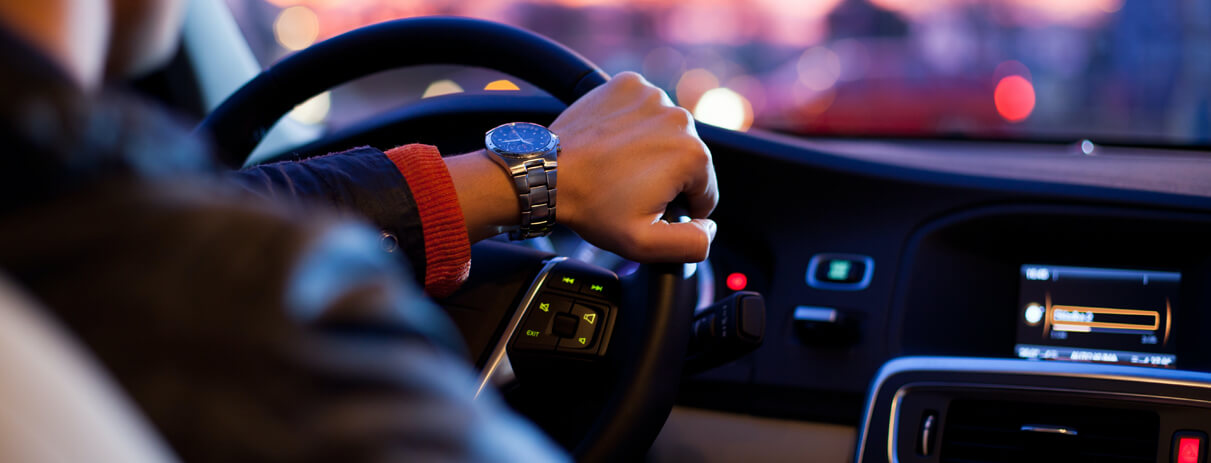Driver’s License Restoration

Drivers License Restoration Michigan
Obtaining your Michigan driver’s license after two or more drinking and driving convictions can seem like an impossible task. The most recent Driver’s License Appeal Rates that this office has received from the Secretary of State shows 10,925 hearing requests of which approximately 50% or 5,356 of those people were outright denied.
Of the remaining 50%:
- 3,544 people had a modification of their revocation, which generally means a restricted driver’s license with an interlock, and
- 2,025 got their full licenses back, which normally means they had a restricted license with an interlock for at least one year.
Our attorneys have handled driver's license restoration cases for over 30 years and know all the pitfalls that one can experience in seeking restoration of a driver’s license. If you want to get your driver’s license, you will need to maximize your chances. Clients with a skilled attorney have a far better success rate than those statistics mentioned above.
The best way of doing that is by contacting our attorneys who can help you throughout the process. By clicking below, you can view one of our YouTube videos which discusses driver’s license appeal basics. You need a competent attorney to guide you through this very complex process.
Our clients have an over 90% success rate in restoring their driver’s license, with only 1 in 10 needing to resend their case.
Drivers License Restoration Michigan Attorneys.
Transcript
My name is Greg Demopoulos. I’m a partner at Bennett & Demopoulos, PLLC, which is a law firm located in Plymouth, Michigan at 217 Ann Arbor Rd., Suite 302. Our office phone number is 734-453-7877. On this video I’m going to share with you what a driver’s license appeal is all about.
What is a driver’s license appeal?
The most common situation for a driver’s license appeal is from multiple drinking and driving offenses. The law in Michigan says that if you have two drinking and driving convictions within 7 years, you will lose your license for a year, and you can’t get it back until you convince the driver’s license Appeal Division that you should get it back. How does that happen? There’s a whole procedure that must be followed, and credibility and consistency is the key.
Also, preparation for your hearing with your testimony and any witnesses you want to call is also the key. It starts off by filling out a petitioner’s affidavit, which is biographical and chronological information about yourself, about any criminal history, driving history, drinking and driving (history), alcohol use and drug use. Then, you’re required to get a 10-panel drug screen and substance abuse evaluation. The substance abuse evaluation has to be by a licensed professional, and that will be another source of information – biographical, chronological and history of use of any alcohol or drugs. You’re also required to get 3 to 6 community proof letters. Community proof letters are letters from what is called a cross section of your community, which generally means friends, family and co-workers. I like to go with 5-6 letters; 6 is the maximum that’s allowed. There are approximately 10 elements that must be in each letter. If those elements are not in each letter, that letter might not be considered.
Consistency is key in a license appeal
Then, you’ll have to testify live at the hearing. There are all these sources of information now: your live testimony, the 3-6 letters, the substance abuse evaluation, and the petitioner’s affidavit. Everything has to be consistent. If it’s not consistent, that increases the chances that you’re not going to win your license appeal. Unfortunately, if you win your first license appeal, you do not get a full license. You have to have a restricted license for one year with an ignition interlock device.
After the year, you can petition the Secretary of State for a full license restoration. The process the second time around is the same as the first time, with the added information that you have to provide of an annual report from the interlock vendor.
I’m going to talk about a few things that I’ve observed over the last 32 years that can get people in trouble on a license appeal. First thing: many people do not readily admit that they have a substance abuse problem. And you may not – but the Secretary of State thinks that you do. We’ll discuss how to get around that at our free consultation. Secondly, Secretary of State does not like to give a restricted license if you’re still on probation or parole. They believe that any decision not to drink is a result of being ordered by a court or higher authority not to drink and that it isn’t voluntary.
The Secretary of State also doesn’t like, for instance, if let’s say you’ve had a period of five years of sobriety in the past and now you only have two years. They will wonder why did you go five years before and you’re only at two years now – are you in relapse again? Every case has a burden of proof. In a license appeal case, you have to show clear and convincing evidence that your alcohol or drug problem is under control and likely to remain under control. That’s how an experienced attorney can present your case in such a way to be the most convincing as possible to the license appeal division and the hearing officer that hears your case.
I hope you found this video helpful. Our phone number is 734-453-7877. We’re located on Ann Arbor Rd., approx. 1-2 miles west of I-275 in Plymouth.
